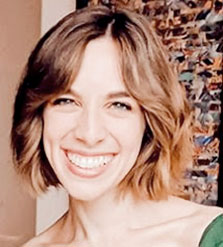 *
*
Recently, I was contacted by Rachel Ranie Taube about a project she is working on. She has created a website https://somervillewrites.wixsite.com/place that collects comments from Somerville writers about how they view Somerville as a ‘place’ to write. After she contributed her article about the project to Off the Shelf, I decided to interview her about her own writing life.

Rachel Ranie Taube
Doug Holder: What brought you to Somerville, and how has it been for you as a writer?
Rachel Ranie Taube: After roving around a bit in the pandemic, my husband and I moved to Somerville for work in summer 2021. I’ve lived in a lot of different places, from Manhattan to Wilmington, North Carolina, and I feel lucky to live in a city where there’s both a wealth of cultural opportunities and space to be in nature. The wonderful Somerville Arts Council is always running some new program, whether a street fair or musical performance. I live a short walk to Alewife Brook Reservation and the bike path, and a quick drive to the Fells and Walden. When I’m stuck in my writing, a walk in the reservation or down new streets usually does the trick.
DH: You describe yourself as a fabulist writer, which is defined as a teller of fables, but it also has a negative connotation. According to the Oxford Dictionary it also can mean, “A liar, a person who invents elaborates, dishonest stories.” How would you respond to this?
RRT: I think two things are simultaneously true: writing always bends and transforms its subject matter, and the goal of writing is to tell the truth.
When I say I’m a fabulist writer, what I mean is that I incorporate speculative or magical realist elements into my work – things happen in my stories that don’t happen in the real world. For example, in one of my stories a girl transforms into a buffalo at night; in another, a woman shrinks over the course of a trip abroad with friends. Some of my favorite writers in the genre are Helen Oyeyemi, Samantha Hunt, Lauren van den Berg, and Carmen Maria Machado.
The reason I’m drawn to fabulist writing is actually because I find it more truthful; it makes intangible things literal. For example, the transformations in the stories I mentioned occur, in part, because of the characters’ relationship dynamics. In another project I’m working on, women inherit and dream their mothers’ memories – which has allowed me to write about the inherent strangeness of mother-daughter relationships. At its best, fabulism uses surreal or bizarre details to explore familiar situations in novel ways.
DH: You work at a feminist communications agency. What is your role and the mission statement of the company. Does this work inform your fiction and poetry?
RRT: I’m the Director of Media Relations at Grey Horse Communications, where we tell stories for mission-driven clients across media, arts, tech, nonprofits, publishing, and more. I’ve gotten to work with some amazing organizations and individuals, from UNICEF and #FreeBritney to Melissa Mills, the first daughter of Jane Roe.
My job allows me to engage on topics like women’s rights on a strategic level. How do I tell this story most clearly? What angle is most compelling, and how does it tie in to larger trends? How do we get journalists and readers to care? Those practical questions certainly help me with clarity and plotting in my fiction, just as my writing experience helps me to get to the heart of our clients’ stories. I’m also of the perspective that all writing is political, so this work helps me to think of my writing as existing within larger dialogues about our world.
DH: I read a piece of flash fiction piece about a girl and an intrusive, and nefarious crow. You also write poetry. What subjects draw you in, and which genre is more appealing to you fiction, non-fiction or poetry.
RRT: I’m especially drawn to writing about the way that societal forces work on girls and women. So that story is about an intrusive, nefarious crow; it’s also a fable that plays on the trope of a princess in a tower needing to be rescued. I also love writing about family dynamics, and investing stories with a strong sense of place.
I spend most of my time writing fiction. Fiction gives me the most unexpected opportunities for invention, and it feels the most like wandering the wilderness. After many years of practice, I still have very little idea what I’m doing every time I enter a new project, which is thrilling. I write some nonfiction too—book reviews, author interviews, the occasional craft essay—mostly because it’s such a good way to connect with the literary community.
DH: Why should we read your work?
RRT: The writer Kelly Link often talks about genre as a promise of pleasure. My goal is that readers experience something thoroughly engaging and unexpected in my writing, whether that’s through fabulist inventions or carefully crafted language. I hope I leave readers feeling thoughtful; maybe a little unhinged.















Reader Comments